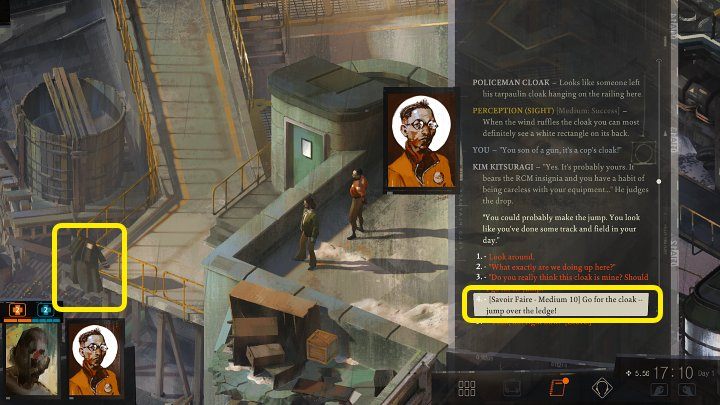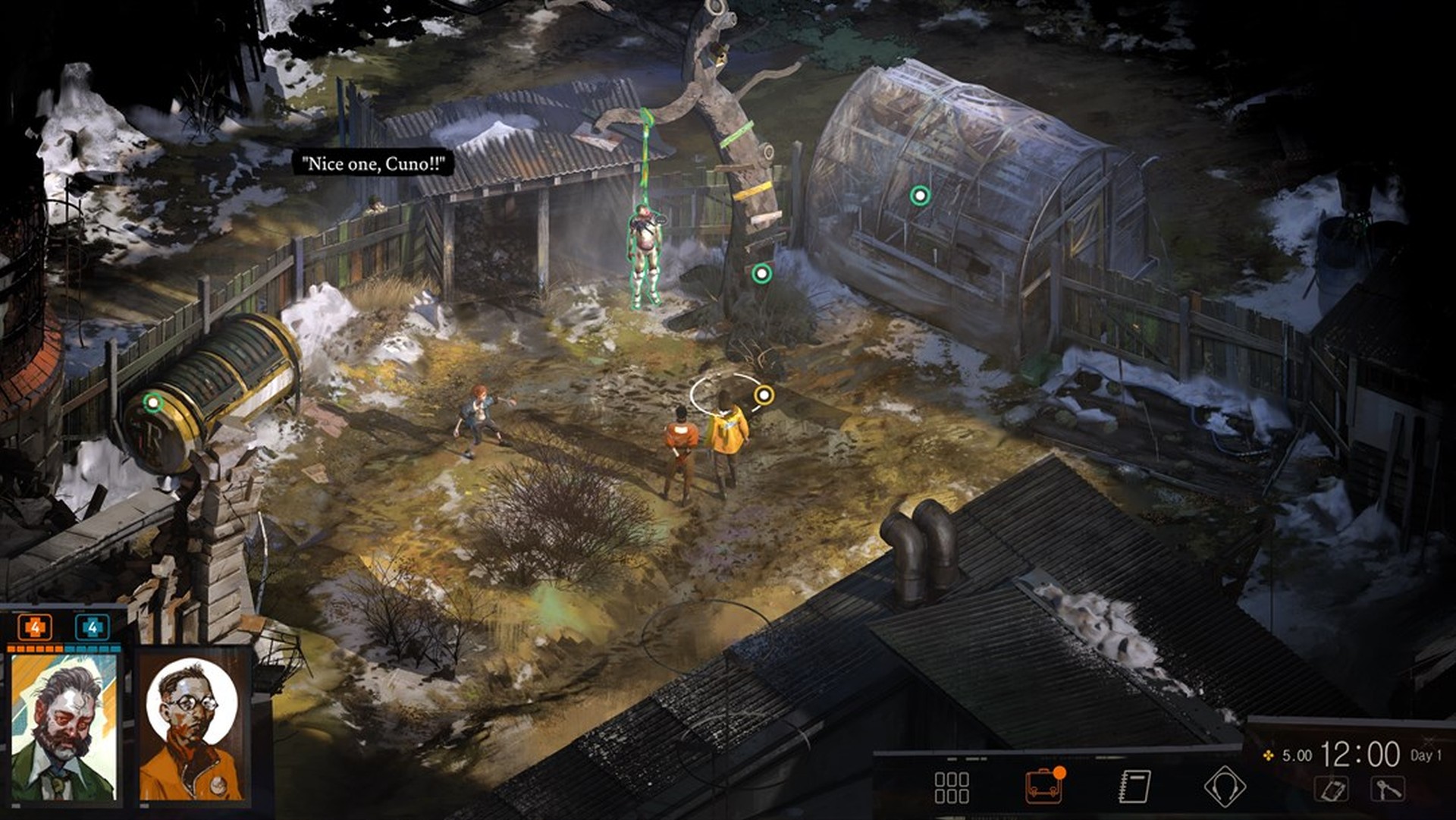

My first playthrough I choose to play as the first archetype, the Thinker, which has high Intellect and Motorics. Once you earn 100 experience points you’ll gain a skill point that can be used to increase any of your skills. You also seem to get little boosts in the middle of conversations when certain things happen. You do have to piece together a few things, but I can’t help but crave something more substantial on that front.Īs you play you gain experience, I’m still not 100% sure on all off the methods that give you experience, but you definitely get it from completing tasks. I know it is very hard to translate those ideas into a game, but I was hoping for a little more deduction and sleuthing, but pretty much everything just comes your way by talking to people. I was somewhat let down by the detective/investigation elements of the game.

This is visible on-screen as an orange overlay.

One of the more interesting ones that plays into you being a detective is Visual Calculus, which will allow you to recreate the crime scene in your mind if you pass the skill check. A few are somewhat self-explanatory like Logic or Perception, but others are more unique, like Inland Empire, which dictates how well you interpret the supernatural, or Electro-Chemistry which determines your relationship with all forms of illicit substances. There are twenty-four stats that affect your playthrough, and they are split into four categories: Intellect, Psyche, Physique, and Motorics. The game actually plays very much like an adventure game, walking around a smallish area and talking to people, but there’s a great deal of customization. Not only will you be talking to an assortment of unforgettable, well-designed characters, you will also be having plenty of conversations with yourself. Right off the bat, the game is introducing you to its hook – one of the elements that help set it apart from the rest of the field. The screen is black nothingness, but you hear a voice it’s part of your subconscious, your ‘ancient reptilian brain’, telling you to just sink into the void. You take control of him the morning after a particularly serious bender. The detective has spent the past few days drinking himself into a stupor he must have some scary personal demons or at the very least some heavy emotional baggage. The overused amnesiac trope works extremely well here, giving the game an excuse to explain everything to you in conversation form – you don’t remember anything so you ask lots of questions and most people are willing to answer. You play as an amnesiac detective who was sent to Martinaise, a small district of the city of Revachol, to investigate a murder. I know you didn’t come here to hear about some silly (but fun) kids game, you came to hear about the disco, drugs, and degeneracy of developer/publisher ZA/UM’s cult hit. So playing something a little more fast-paced like Rainbow Billy with a nice amount of variety was the perfect way to satisfy my easily distracted brain. What it does well, it does extremely well – the writing, the characters, the art are all amazing, and the dialogue system combined with the role-playing customization elements take the game to the next level, but outside of all that the gameplay is somewhat hollow. Alternatively, Disco Elysium, despite its critical acclaim can feel like a one-trick pony at times. The problem I had with the game was the dialogue which sounded like it was straight out of a show your younger sibling might have watched when you were kids (in my case, that show was Barney – I’ve always hated Barney) so the crazed, imaginative depravity of Disco Elysium was the perfect antidote for my brain. I know some of you might be scoffing, how could I compare the critically acclaimed Disco Elysium to some game that looks like it’s based on a kid’s cartoon show? I’m not comparing them, but the gameplay in Rainbow Billy was surprisingly good, it never got dull because it had a nice amount of variety. As strange as it sounds I think playing both of these games concurrently made me appreciate each one more, almost as if they were balancing each other out.

Rainbow Billy: The Curse of the Leviathan is a 3D monster befriending (taming) adventure that is disgustingly wholesome, whereas the other game, Disco Elysium: The Final Cut (the focus of this review), is a detective themed, narrative-driven role-playing game packed with dark humor and adult themes. The two most recent games I’ve played for review could both fall into that category, and they happen to be polar opposites. In my time at the Tavern, I’ve tried to broaden my gaming horizons and review games I wouldn’t normally play.


 0 kommentar(er)
0 kommentar(er)
